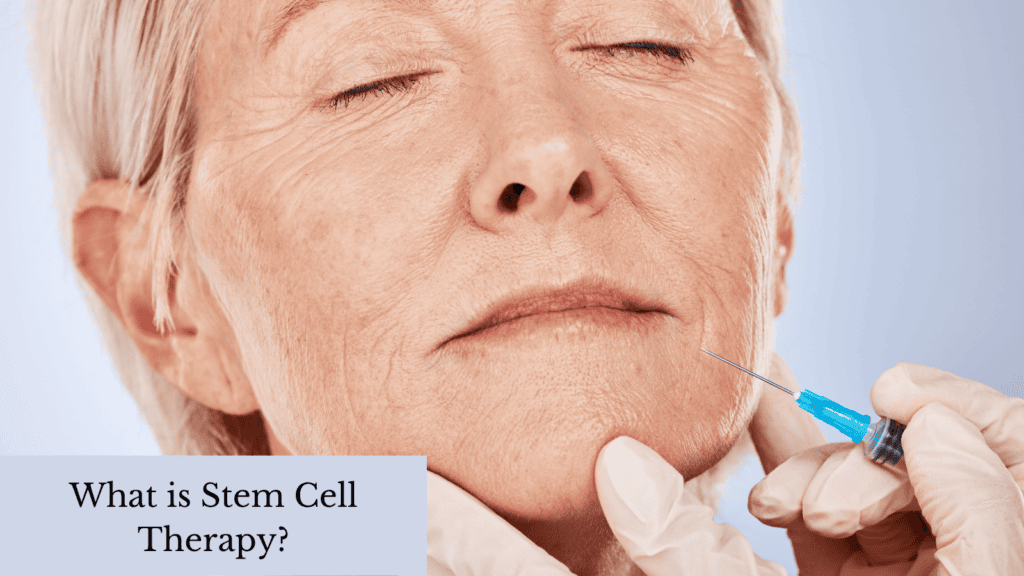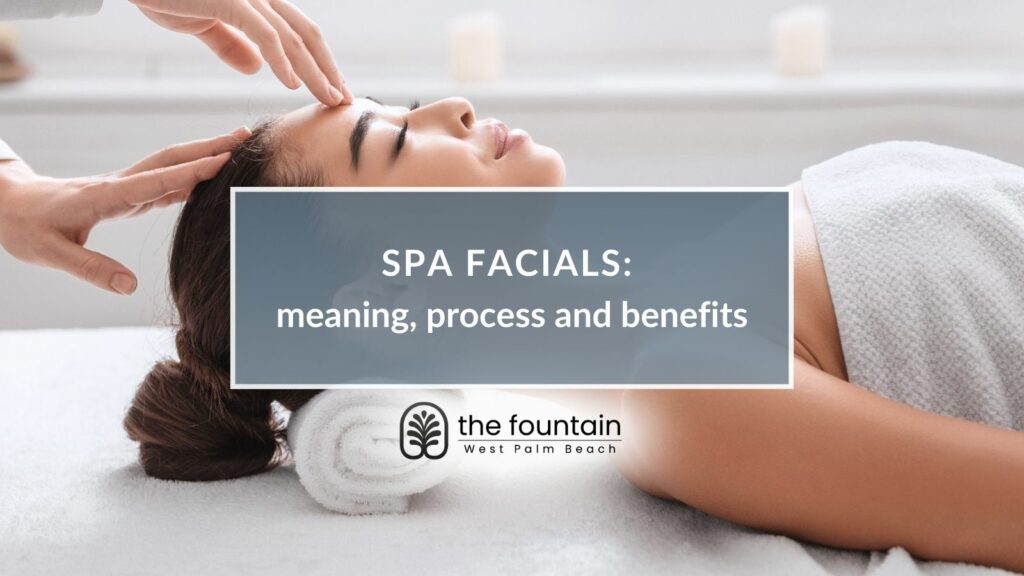Stem cell therapy, also known as regenerative medicine, is a type of treatment that uses stem cells to repair or replace damaged cells, tissues, and organs. This revolutionary approach is transcending traditional beauty and health treatments to offer a holistic path towards rejuvenation and vitality. Stem cell therapy is meticulously designed to address hormonal imbalances that can affect mood, energy, and overall health, while also targeting the skin’s repair process to reduce signs of aging, such as wrinkles and loss of elasticity.
The benefits of stem cell therapy are profound. For those seeking a natural yet effective route to revitalization, this therapy offers a promising solution. It aids in the restoration of hormonal equilibrium, enhancing one’s sense of well-being, while simultaneously promoting skin regeneration. This holistic treatment works to invigorate the body from within, fostering a state of balanced health and vitality.
While the journey to optimal health and youthful skin is deeply personal and varies from person to person, the tailored approach of stem cell therapy ensures that each individual’s path to wellness is as effective as it is luxurious. This fusion of nature’s wisdom with scientific advancement holds the promise of unlocking unparalleled levels of health, beauty, and longevity, redefining the essence of what it means to age gracefully.

What is Stem Cell Therapy?
Stem cell therapy involves the use of undifferentiated cells that develop into different cell types needed for repairing or replacing damaged tissues. It can be applied to treat a wide range of medical conditions, including but not limited to, hormone imbalances, orthopedic injuries, neurological disorders, and anti-aging.
By promoting the regeneration of healthy tissue and influencing the body’s natural healing processes, it can help restore hormonal equilibrium, which is vital for maintaining overall well-being. Additionally, stem cell therapy aids in rejuvenating the skin and other tissues, contributing to a more youthful appearance and slowing down the aging process. This multifaceted approach not only targets specific health issues but also contributes to enhanced longevity and quality of life.
What are the Types of Stem Cell Therapy used for Anti-Aging?
Stem cell therapy for anti-aging primarily utilizes two types of stem cells due to their regenerative properties and ability to rejuvenate skin and other tissues:
- Mesenchymal Stem Cells (MSCs): These are adult stem cells found in various tissues, including bone marrow, fat (adipose tissue), and umbilical cord tissue. MSCs are favored in anti-aging treatments for their ability to differentiate into a variety of cell types, reduce inflammation, and stimulate tissue repair. They are used in procedures aiming to improve skin elasticity, reduce wrinkles, and enhance overall skin appearance, as well as in treatments for age-related diseases affecting other body systems.
- Adipose-Derived Stem Cells: Sourced from the patient’s own fat tissue, these stem cells are easily harvested and abundant in supply. Adipose-derived stem cells are applied in cosmetic procedures for facial rejuvenation, promoting the repair of sun-damaged skin, and improving skin texture and volume, offering a natural alternative to synthetic fillers and surgical facelifts.
- Induced Pluripotent Stem Cells (iPSCs): Although not as commonly used in direct patient treatments due to the complex process of reprogramming adult cells to a pluripotent state, iPSCs hold significant potential in anti-aging research. They can generate cells of virtually any type, offering possibilities for creating tissues that can rejuvenate aged organs and studying the aging process on a cellular level.
What are the Benefits of Stem Cell Therapy for Hormone Imbalances?
Stem cell therapy offers a novel approach to addressing hormone imbalances, with potential benefits stemming from its ability to target the underlying causes of hormonal dysfunction. Here are some of the key benefits:
- Regeneration of Hormone-Producing Glands: Stem cells have the potential to regenerate damaged tissues, including those of hormone-producing glands like the thyroid, pancreas, and adrenal glands. By repairing these glands, stem cell therapy can help restore their ability to produce hormones at normal levels, potentially correcting imbalances.
- Reduced Reliance on Hormone Replacement Therapy (HRT): By aiming to restore the body’s natural hormone production, stem cell therapy could reduce the need for long-term HRT, thereby minimizing the risks and side effects associated with synthetic hormones.
- Improved Symptom Management: Hormone imbalances can lead to a wide range of symptoms, from fatigue and weight gain to mood swings and sleep disturbances. Stem cell therapy may alleviate these symptoms by addressing the root cause of the imbalance.
- Enhanced Overall Well-being: Hormones play a critical role in regulating various bodily functions, including metabolism, sleep, and mood. By helping to balance hormone levels, stem cell therapy can contribute to improved overall health and well-being.
- Potential for Long-term Solutions: Unlike traditional treatments that often focus on managing symptoms, stem cell therapy seeks to repair and regenerate the affected glands, offering a more lasting solution to hormone imbalances.
How Effective is Stem Cell Therapy in the Realm of Wellness?
The effectiveness of stem cell therapy in the realm of wellness is an area of growing interest and optimism within the medical community. While comprehensive statistics are still being developed, preliminary research and clinical observations suggest potential benefits.
In anti-aging applications, stem cell therapy is credited with improving skin elasticity, reducing wrinkles, and promoting a more youthful appearance, based on patient reports and dermatological assessments.
For hormone-related treatments, early studies indicate that stem cell therapy offers improvements in managing symptoms associated with hormonal imbalances, such as those experienced during menopause or testosterone deficiencies. These therapies aim to harness the regenerative capabilities of stem cells to restore normal hormone production and balance, offering a novel approach to treating complex hormonal issues.

What is the Process for Stem Cell Therapy?
The process for stem cell therapy begins with an initial consultation and evaluation by a healthcare provider to determine suitability. Depending on the treatment plan, stem cells are either harvested from the patient’s own body (autologous) or sourced from a donor (allogeneic). These cells are then processed and possibly cultured in a laboratory to increase their quantity or to induce specific cell types.
The prepared stem cells are injected into the patient at the targeted area or administered through intravenous infusion. The procedure concludes with a series of follow-up assessments to monitor the therapy’s effectiveness and to identify any potential side effects. This entire process is customized to meet the unique health needs and conditions of each patient, ensuring a tailored approach to therapy.
Are There Any Negative Effects of Stem Cell Therapy?
Stem Cell Therapy may have potential negative effects, including the risk of immune rejection, infection at the injection site, and the possibility of the introduced stem cells differentiating in unintended ways. As with any medical treatment, the specifics of the individual’s condition and the type of stem cells used can influence the risk profile. It’s important for patients to discuss these risks with healthcare providers and consider the therapy’s benefits against its potential drawbacks.
How Long Does Stem Cell Therapy Last for Anti-Aging and Hormones?
The longevity of stem cell therapy’s effects can significantly differ based on the targeted condition, the stem cell type utilized, individual health factors, and the body’s response to therapy.
In anti-aging applications, such as skin rejuvenation or reduction of age-related symptoms, the outcomes may necessitate periodic treatments to sustain improvements, often with patients undergoing sessions every few years to preserve the youthful appearance and benefits.
For hormone-related treatments, addressing issues like hormonal imbalances or menopause symptoms, the duration of effectiveness can also vary. Some individuals might see long-lasting changes, while others may require additional treatments over time to maintain hormonal balance and alleviate symptoms.
Is the Use of Stem Cell Therapy Controversial?
The use of stem cell therapy has been the subject of controversy, primarily due to ethical, legal, and social concerns. The main points of contention include:
- Source of Stem Cells: Ethical debates often revolve around the use of embryonic stem cells, which are derived from human embryos. Some argue that this process involves ethical dilemmas related to the status and rights of the embryo. In contrast, adult stem cells and induced pluripotent stem cells (iPSCs) tend to be less controversial because they do not involve the use of embryos.
- Regulation and Oversight: The regulatory landscape for stem cell therapy varies by country, with some jurisdictions having strict guidelines and others offering more leniency. This discrepancy raises concerns about the safety, efficacy, and quality of stem cell treatments, especially those offered by clinics operating in less regulated environments.
- Safety and Efficacy: Despite the potential benefits, there are concerns about the safety and long-term effects of stem cell therapy. Risks such as immune rejection, the formation of tumors, and the possibility of cells differentiating into unintended tissue types are significant considerations. Moreover, the efficacy of some stem cell treatments, particularly those marketed for conditions with limited scientific evidence supporting their use, is questioned.
- Commercialization and Access: The commercialization of stem cell therapies, especially those not fully supported by rigorous clinical trials, raises ethical issues regarding patient exploitation and access to treatment. High costs and aggressive marketing tactics may exploit vulnerable patients seeking hope for incurable conditions.
Despite these controversies, stem cell research and therapy continue to advance, with significant potential for treating various health issues. Ethical frameworks, regulatory standards, and continued scientific research are critical for addressing these concerns and realizing the full potential of stem cell therapy in a responsible manner.

Can Stem Cell Therapy Reverse Menopause?
Stem cell therapy is being studied as a way to alleviate menopause symptoms and improve ovarian function, but it cannot reverse menopause. Current research, including animal studies, suggests potential benefits in regenerating ovarian tissue and enhancing hormone production, which might ease menopausal symptoms. However, these applications are still experimental and not yet available for clinical use. Effective treatments for menopause should be discussed with healthcare professionals, as more research is needed before stem cell therapy becomes a viable option.
What types of stem cells are used in anti-aging therapy, and how are they administered?
The most commonly used stem cells in anti-aging therapy are mesenchymal stem cells (MSCs), derived from bone marrow, adipose tissue, or umbilical cord blood. These cells can differentiate into various cell types and are administered via injections or intravenous infusion. The choice of stem cell type and administration method depends on the targeted area and the specific goals of the therapy.
What are the potential benefits and risks of stem cell therapy for anti-aging?
- Benefits: Potential benefits include improved skin elasticity and appearance, enhanced energy levels, and a general feeling of well-being. Some also seek it for hormone regulation, aiming to improve metabolic, sexual, and cognitive functions.
- Risks: As with other stem cell therapies, risks may include infection, immune reactions, and the possibility of inappropriate cell growth or differentiation. The long-term effects and efficacy of anti-aging stem cell treatments are still under investigation, making it crucial for individuals to seek treatment from reputable and regulated healthcare providers.
Can stem cell therapy be used for cognitive enhancement in anti-aging?
Stem cell therapy for cognitive enhancement in anti-aging focuses on using stem cells to rejuvenate the brain and improve cognitive functions such as memory, focus, and processing speed. This therapy aims to mitigate age-related cognitive decline by promoting the regeneration of neuronal cells and enhancing neural connectivity.





